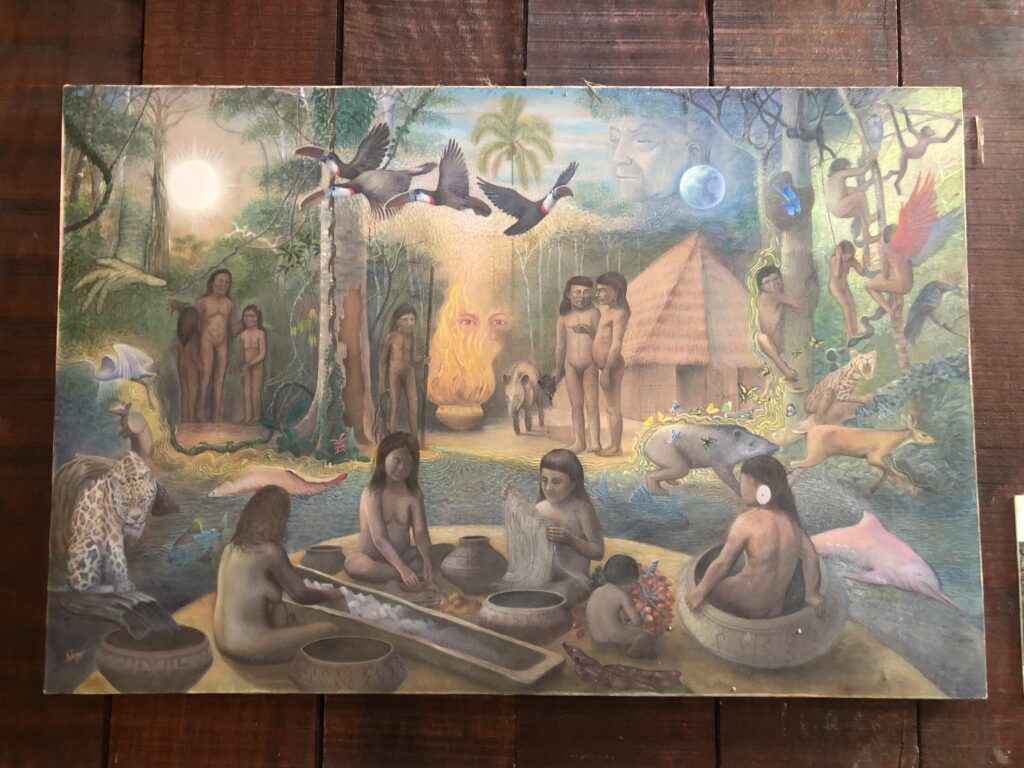Let’s Talk about Ecospirituality
Is there a “correct” way for us, as people, to connect with and conserve the environment? Modern ecological stewardship relies heavily on scientific insights for guidance on how humanity can live in harmony with nature, yet Indigenous wisdom has often embraced a more intuitive and sacred approach with great success.
Within the movement for climate justice and sustainable living, there is room for both paths to help guide us to the same destination. In fact, a combination of secular, research-based methodology with a spirituality oriented toward connection to and respect for the Earth can actually help sustain the environmental movement overall. In this blog article series, we will explore the vital and vibrant concept of ecospirituality.
Ecospirituality can seem to be an enigmatic term, but what does it really mean? It is a multifaceted way of thought that showcases the interconnectedness between environmental science and belief systems towards the realization of a sustainable future. Let’s start by defining the term:
Ecospirituality: a manifestation of the spiritual connection between human beings and the environment (Lincoln, Valerie. 2000. “Ecospirituality”. Journal of Holistic Nursing.).
However, what does this mean for the Institute for Ecological Civilization? Our definition:
Ecospirituality: a discipline that combines elements of ecology and religious ideologies to bring about a mindset revolution toward an ecological mindset.
We’ve talked about what it is, but why should we care about ecospirituality? We are living in a world facing climate crises, environmental degradation, and social injustice. Acting quickly to bring about long-term sustainable change is imperative. Ecospirituality — as an alternative way of thought — highlights the spiritual dimension to our present ecological crisis. Once we understand the multiple perspectives of ecology and spirituality, then can we bring about change both internally and externally. Simply put, ecospirituality can be the thought process that pushes for long-term sustainable change for people and the planet.

Maijuna Cosmology: Indigenous Community of the Peruvian Amazon
Ecospirituality reconnects us to nature and lets us recognize how the Earth greatly influences our belief systems. For example, Jainism — a minority religion of India — implements the concept ahimsa (non-violence), where humans must reduce the negative impacts that they have on the environment and towards other life forms. This way of thinking brings us to reflect more directly on our own relationship with nature and how we can reduce the harm that we bring upon the Earth, animals, and each other. In short, ecospirituality acts as an important thought process pushing us towards understanding alternative ways of environmental and social activism.
You might be familiar with Buddhism, but did you know that there are many other religions and belief systems that also have an inherent understanding of the environment and our relationship with the Earth? Throughout this blog series, we will dive deeper into these belief systems, looking specifically at Eastern religions: Buddhism, Hinduism, Sikhism and Jainism; as EcoCiv directly works with these belief systems and their communities. Stay tuned for more and to learn about what the Institute for Ecological Civilization is doing to further introduce ecospirituality into the Western world.
Written by: Juliana Arnold
Communications and Writing Assistant
Project Manager, Ecological Mindset Project
